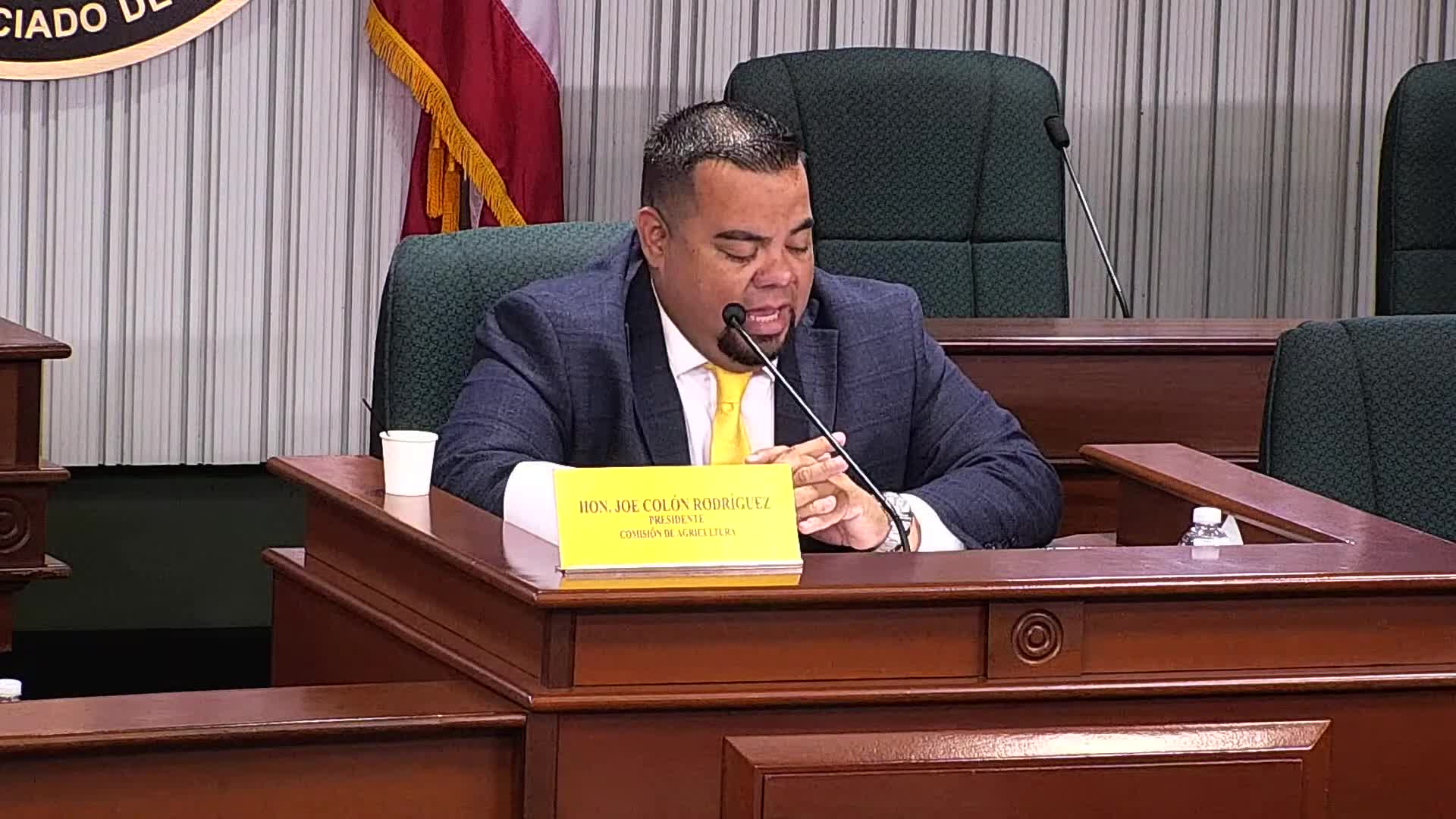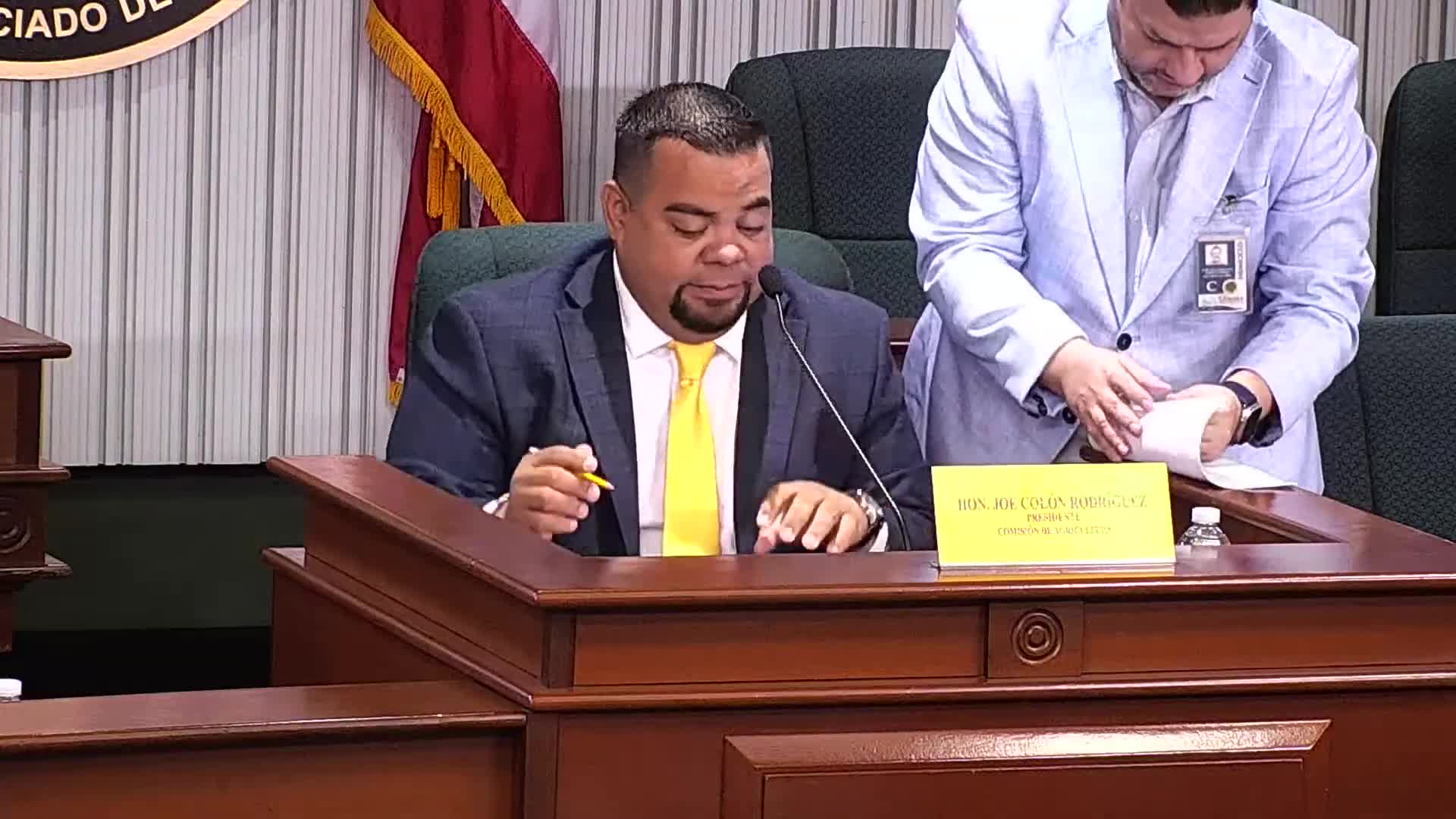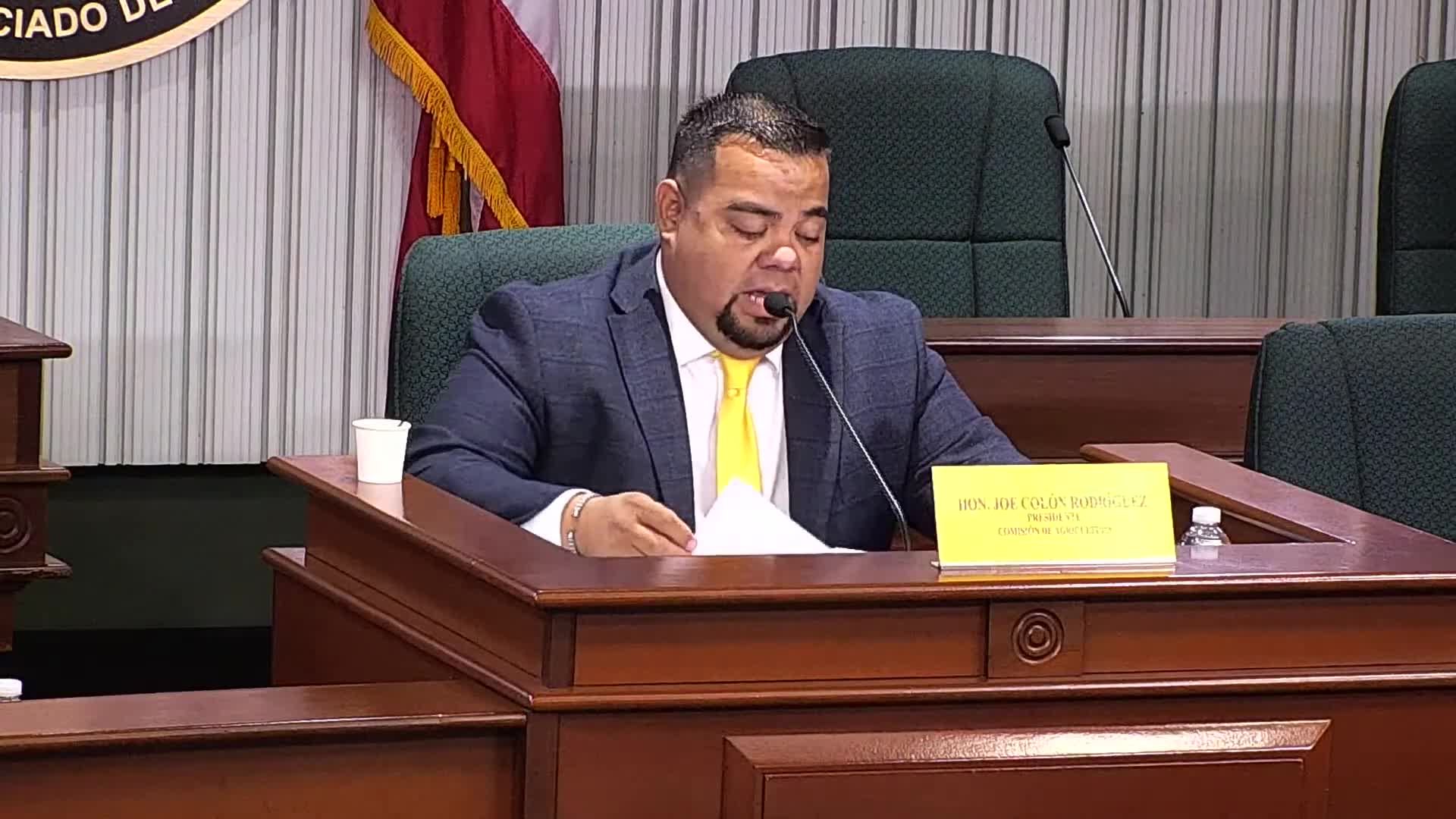Article not found
This article is no longer available. But don't worry—we've gathered other articles that discuss the same topic.

House Agriculture Committee backs S.206 education push for home, school and community gardens; agency urges coordination and funding clarity

Committee signals support for S.190 to expand —Manos para el Campo' program; department urges clarifications and operational recommendations

